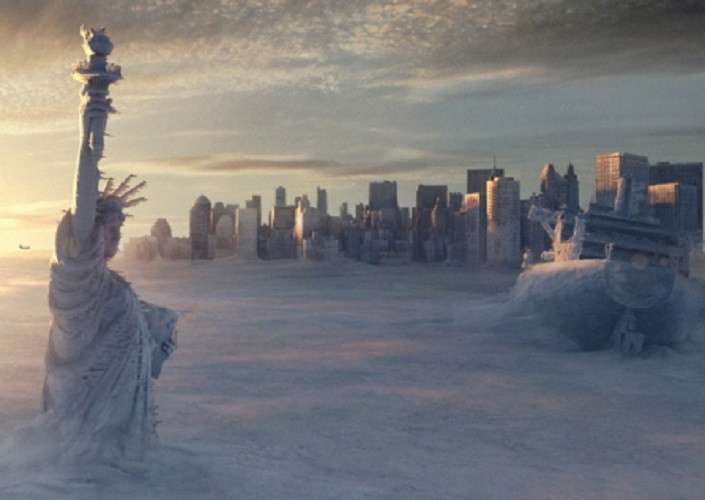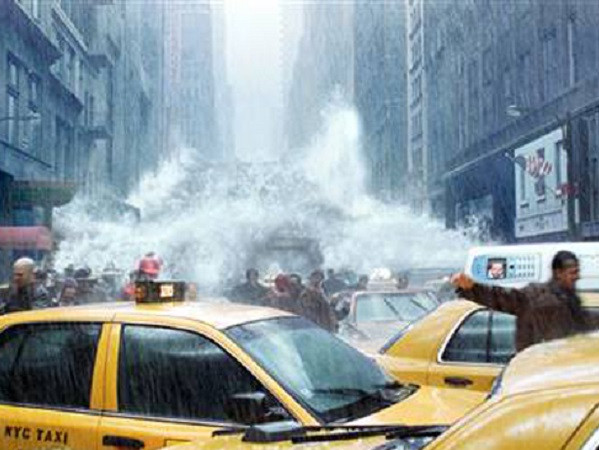Climate Change: Day After Tomorrow New Ice Age Scenario Unlikely - But Not Ruled Out

A future where the planet plunges into a deep freeze as seen in Roland Emmerich's disaster blockbuster The Day After Tomorrow is unlikely to happen, researchers have said, although they have not ruled it out.
Experts have looked at past climate change to determine whether future shifts will be abrupt, as depicted in the Hollywood movie, or more gradual over a long time.
In the film, the entire northern hemisphere freezes over because melting polar ice has started to disrupt the North Atlantic current, causing a series of catastrophic storms.
The researchers, led by University of Bergen and Uni Research in Norway, looked at deep ocean circulation in the northern North Atlantic to find out what our future is likely to look like.
The deep waters studies fill half of the globe's deep oceans. They have a direct effect on the "circum-Atlantic" climate and sea level by soaking up CO2 and moderating the effects of global warming.
Any shift in its circulation is considered a tipping point in our future climate that has the potential to have a huge and long-lasting impact on sea level, droughts, ocean acidification and CO2 levels.
Circulation patterns are considered stable. However, the researchers found they may be much more fragile than believed.

The team reconstructed surface ocean conditions and deep ocean circulation from about 125,000 years ago – the last time the North Atlantic was warmer, fresher and higher than today. This is also what some climate models predict the Earth will look like by 2100.
The team studied deep ocean properties by imprinting sediments on the seafloor at a location where mud builds up 10-15 times faster than normal, meaning a few centuries can be examined over a much shorter period.
Findings showed short-lived changes that "flickered back and forth" from an unstable circulation. They said there was a series of "sudden and large reductions" in the influence of the waters in the deep oceans and that these "occurred repeatedly, each lasting for some centuries before bouncing back".
Co-author Yair Rosenthal said: "Our study demonstrates that deep water formation can be disrupted by the freshening of the regional surface water, which might happen due to enhanced precipitation and glacier melting under future climate change scenarios."
They suggested, however, that the planet would not freeze over. Although some cooling occurred, there was no evidence to suggest massive cooling as seen in the Hollywood film.
"A popularised notion is that if the ocean circulation declines it could cause large cooling or, as in the case of the Hollywood movie The Day After Tomorrow, a new ice age. Although some cooling did occur locally south of Greenland when the circulation slowed, there was no evidence for really large cooling associated with these changes," they said.
"It could be that human beings haven't been able to find it yet, but equally reasonable is that [we] simply don't get really big cooling as the ocean slows down because when it is really warm, sea ice cannot form, and this supercharges the cooling effect of ocean circulation changes," they said.
© Copyright IBTimes 2025. All rights reserved.






















